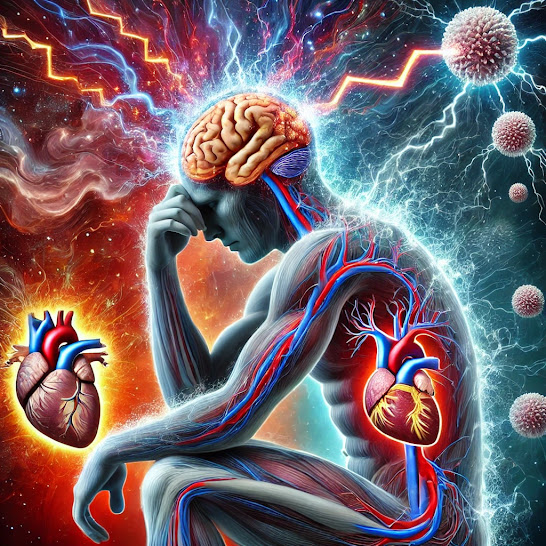The Science of Stress: How Chronic Stress Affects the Brain and Body
The Science of Stress: How Chronic Stress Affects the Brain and Body
Stress is a natural response to challenging situations, helping individuals react quickly and effectively. However, when stress becomes chronic, it can have detrimental effects on both the brain and body. Understanding the physiological and neurological impacts of prolonged stress is crucial for maintaining overall well-being.
Physiological Effects of Chronic Stress
One of the primary mechanisms of stress is the release of cortisol, a hormone produced by the adrenal glands. While cortisol plays a vital role in regulating metabolism, blood pressure, and immune responses, excessive levels due to chronic stress can lead to a range of health issues:
Cortisol Overload: Persistent stress results in consistently high cortisol levels, which can disrupt various bodily functions. This can lead to weight gain, high blood pressure, and increased risk of cardiovascular diseases.
Immune System Suppression: Chronic stress weakens the immune system, making individuals more susceptible to infections and illnesses. Long-term immune suppression may also contribute to the development of autoimmune disorders.
Gastrointestinal Problems: Stress affects the digestive system, leading to conditions such as irritable bowel syndrome (IBS), acid reflux, and ulcers.
Neurological Effects of Chronic Stress
The brain is particularly vulnerable to prolonged stress. High cortisol levels can alter brain structure and function, impacting cognition and emotional regulation.
Memory Impairment: The hippocampus, a critical brain region for memory and learning, is highly sensitive to stress. Chronic stress can shrink the hippocampus, leading to memory loss and difficulty retaining information.
Brain Fog and Cognitive Decline: Excessive stress can impair concentration, problem-solving, and decision-making abilities, leading to a state often described as "brain fog."
Emotional Dysregulation: The amygdala, responsible for processing emotions, becomes hyperactive under chronic stress. This can result in heightened anxiety, irritability, and difficulty managing emotions.
Risk of Mental Health Disorders: Prolonged stress increases the likelihood of developing anxiety, depression, and post-traumatic stress disorder (PTSD).
The Impact on Decision-Making and Behavior
Stress affects the prefrontal cortex, the part of the brain responsible for decision-making, impulse control, and rational thinking. When stress is chronic:
Individuals may become more impulsive and prone to making poor decisions.
Emotional reactivity increases, leading to difficulty in maintaining relationships and managing daily stressors.
Increased reliance on unhealthy coping mechanisms such as overeating, smoking, or substance abuse.
Managing and Reducing Stress
While stress is unavoidable, adopting effective stress management techniques can mitigate its negative effects. Strategies include:
Regular Exercise: Physical activity helps regulate cortisol levels and promotes overall brain health.
Mindfulness and Meditation: Practices such as deep breathing and meditation reduce stress and improve emotional regulation.
Healthy Diet: Nutrient-rich foods support brain function and counteract the effects of stress.
Adequate Sleep: Prioritizing rest allows the brain to recover and improves cognitive function.
Social Support: Building strong social connections can help buffer the negative effects of stress.
Conclusion
Chronic stress is more than just an emotional burden—it has profound effects on both the body and brain. Understanding how stress impacts memory, decision-making, and overall health underscores the importance of managing stress effectively. By adopting proactive strategies, individuals can mitigate the harmful effects of stress and maintain a healthier, more balanced life.



Comments
Post a Comment